News & Stories
Filters
2019
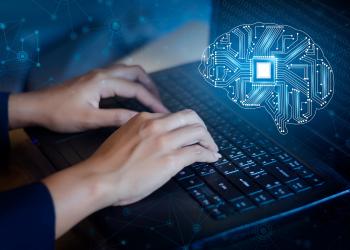
News
Let's Play it Smart on Computer Interfaces
Brain-machine interface - or the technology to synergize the brain with an external device so the latter can carry out orders, has been frequently featured in sci-fi movies as futuristic fantasy.
Instead of maneuvering with our fingertips, individuals connected to such devices can transmit their thoughts, and the machines would do their bidding like magic.
Recently, an American start-up promised to make this scenario a reality.
A small chip would be surgically inserted into one's brain, which is then connected to a receiver with or without a wire, allowing the user to control things like a mouse or a keyboard.
The company is even aiming to make the implant surgery equivalent to a simple surgical procedure like LASIK where one can walk away within hours.
While this sounds revolutionary for people with disabilities, is the general public ready to sign up for its service?
News
Using Civil Engineering Mentality to Solve Real-world Problems
Hong Kong completed two mega infrastructure projects last year — the Hong Kong-Zhuhai-Macau Bridge and Guangzhou-Shenzhen-Hong Kong Express Rail Link — and six more are on the way. From highways to railways, few public services are untouched by the discipline of civil engineering. However, non-technical students may still not be aware of the extent of impact civil engineering has on our everyday lives.
Prof. Thomas HU of Civil and Environmental Engineering aims not only to transfer knowledge to the youth who may know nothing about civil engineering, but also instill in his students a critical and open mind. Since undertaking “Civil Engineering and Modern Society”, a Common Core course, in early 2016, he has turned it into one of the most practical and popular courses at HKUST, helping students from all sorts of disciplines understand how Hong Kong’s key issues can be solved from a civil engineering perspective.
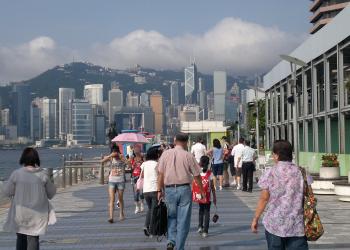
News
HK Set for Worst of It Amid Climate Change
This month, we experienced the hottest day of the year as temperatures in Hong Kong reached 35.1 degrees Celsius.
Countries across western Europe also struggled in record-breaking temperatures recently, with France hit the worst at 45.9 degrees in June.
The grim situation appears to have been a repeat of last year's conditions.
Although there are ongoing indepth analyses and further studies to examine the causes of individual extreme temperature events, many experts believe that extreme heat waves would not be feasible without anthropogenic climate change, meaning human activities are the main culprit for global warming ravages.
Such an assumption has been proven by climate models - a complex computer simulation of physical processes and mathematical formulae used mainly to predict climate and understand how the climate system responds to elevated greenhouse gas emissions.
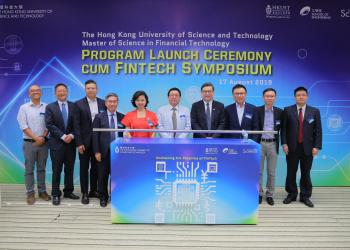
News
HKUST Launches Joint School MSc in Financial Technology Program
School of Business and Management, School of Engineering, and School of Science of The Hong Kong University of Science and Technology (HKUST) are jointly offering the inaugural university-wide Master of Science in Financial Technology (MSc Fintech) Program in Hong Kong.
The MSc Fintech program at HKUST is a one-year full-time or two-year part-time program that aims to bridge the talent gap in the Fintech industry. The Program leverages the diverse expertise of professors in the three schools to provide students with the fundamental knowledge and skills related to popular financial technologies and their engineering and financial principles. Students will enhance their market competitiveness in the multi-disciplinary and booming Fintech space. The first cohort welcomes 60 professionals with backgrounds mainly in finance and technology.
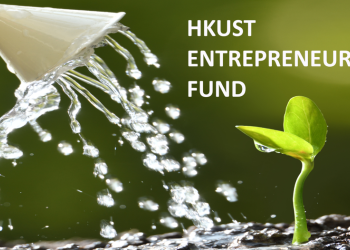
News
HKUST Sets Up a HK$50 million Fund to Support Startups
The Hong Kong University of Science and Technology (HKUST) has set up HKUST Entrepreneurship Fund (“E-Fund”) to support the development of startups at HKUST – especially those in their early stage. The fund seeks to facilitate knowledge transfer, promote entrepreneurial spirit among HKUST stakeholders, and bring about social and economic impact.
With an initial funding of HK$50 million committed by the University, E-fund is expected to invest into HKUST startup companies for the next five years. Donation in support of entrepreneurship in innovation and technology can also be allocated to the fund. Selected companies may receive up to HK$2 million of investment from HKUST in support of activities including research and development, as well as business and market development. Startups featuring innovative technologies and/or business models would have advantages of being selected.
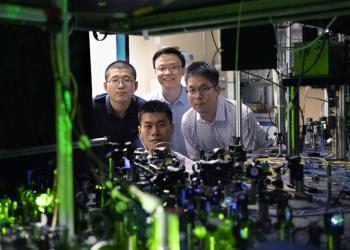
News
HKUST-led Research Team Unveils Groundbreaking Quantum Simulation of 3D Topological Matter with Ultracold Atoms
Complex topological matter (peculiar materials with different bulk and surface properties) has become the focus of both industrial and academic research because it is seen as a way to eventually make quantum computing more noise-free and robust. Today’s physical quantum computers are still noisy, and the protection of fragile quantum information against noises is a growing field of research. The goal of fault-tolerant quantum computing is to maintain its functionality in the presence of noise, which has driven investment into complex topological matter.
News
Gift of 500M from LKSF to Set Up Hong Kong’s First Institute of Synthetic Biology in HKUST
The Hong Kong University of Science and Technology (HKUST) received a HK$500 million donation from Li Ka Shing Foundation (LKSF) yesterday for the establishment of Hong Kong’s first institute of synthetic biology – a best-in-class research platform focuses on synthetic biological technologies.
The new academic and research building of the “Li Ka Shing Institute of Synthetic Biology” (The Institute) will provide the most advanced facilities, aiming to attract the world’s top scholars in a move to steer Hong Kong into a global pioneer in synthetic bio-technologies.

News
Manufacturing Bias Disservice to Future
The United States maintains it has the upper hand being the bigger "buyer" in the relationship, while the Chinese argue the goods of lower costs it exports are doing a big favor to US consumers, who would ultimately suffer if the costs of such goods continue to rise because of tariffs.
While China is busy fighting the trade war externally, Beijing is concurrently trying to improve the efficiency of the economy to make it more robust and resilient in such difficult times.
An often-overlooked feature of Sino-US trade imbalances is that although Beijing runs up huge trade surpluses in the manufacturing sector, it has large deficits in the service sector.
These supply and demand mismatches suggest that there may exist inefficient misallocations in the Chinese economy.
Economic efficiency is achieved when factors of production in an economy are distributed or allocated to most productive firms or sectors with the highest demand.






